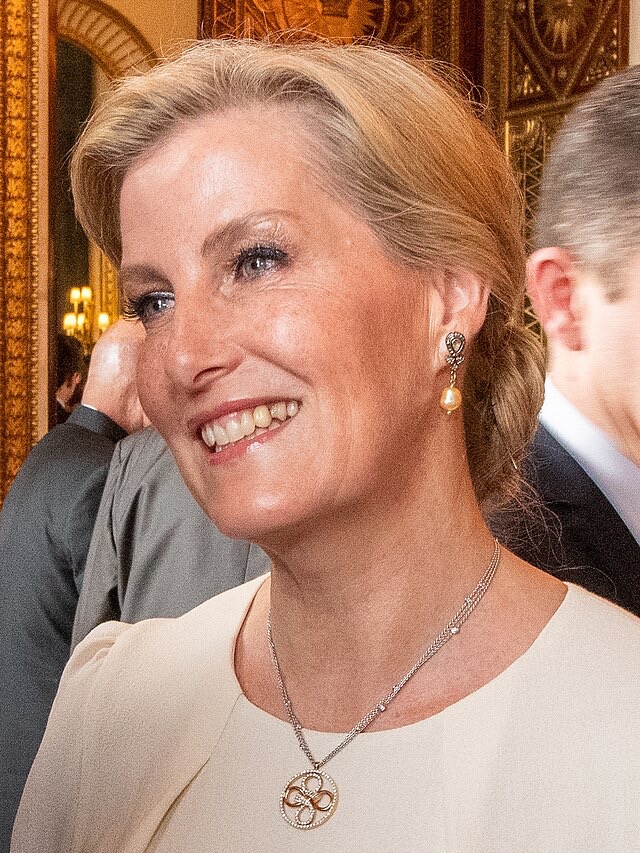The Duchess of Edinburgh has represented King Charles III at commemorations marking three decades since the Srebrenica genocide, delivering a royal message acknowledging international failures and honouring survivors at the memorial centre in Bosnia and Herzegovina on Friday.
Her Royal Highness Sophie attended the official 30th anniversary event at the Srebrenica Memorial Centre in Potočari, where more than 8,000 Bosnian Muslim men and boys were systematically murdered by Bosnian Serb forces in July 1995. The killings have been legally recognised as genocide by international courts.
The King, who was unable to attend in person, sent a strongly-worded message addressing the international community’s culpability. “Many of the individuals responsible are now rightly facing justice, but this does not absolve the rest of us of our duties: both to acknowledge the international community’s failure to prevent the horror and to do all we can to ensure it never happens again,” His Majesty stated.
The commemorations mark Europe’s worst atrocity since the Second World War, which occurred in what had been declared a United Nations “safe area” under the protection of Dutch peacekeepers. The systematic killings took place between 11-16 July 1995 after Bosnian Serb forces overran the enclave.
I humbly salute the Mothers of Srebrenica, and all who do so much, despite their continuing anguish, to preserve the memory of those who died,” the King wrote, referring to the association representing 6,000 survivors founded by women who lost family members in the massacre.
The Duchess’s three-day visit to Bosnia and Herzegovina included meetings with survivors of wartime sexual violence and representatives of the Missing Persons Institute. Željko Komšić, member of the Presidency of Bosnia and Herzegovina, received Her Royal Highness and expressed gratitude for the continued support from the United Kingdom.
Government figures confirm that DNA analysis has identified 6,981 victims to date, whilst approximately 1,000 people remain missing. The International Commission on Missing Persons estimates just over 8,000 were killed during the massacre.
“Only by working together to find the missing can there be closure for those still seeking answers,” the King’s message emphasised.
The anniversary comes after the UN General Assembly designated 11 July as the International Day of Reflection and Commemoration of the 1995 Genocide in Srebrenica in May 2024. The resolution, sponsored by Germany and Rwanda, passed with 84 countries voting in favour.
Former Bosnian Serb military commander Ratko Mladić and political leader Radovan Karadžić are among those serving life sentences for genocide following convictions at the International Criminal Tribunal for the former Yugoslavia. Courts have convicted 20 individuals at international level and 57 at Bosnia’s State Court.
The King praised those working towards reconciliation, stating: “Let us also take inspiration from those who bravely speak out in pursuit of justice and those who dedicate their lives to rebuilding trust between communities for the sake of a better, shared future.”
Sources familiar with the commemorations confirmed that thousands gathered at the memorial centre for the annual burial ceremony, where newly identified victims are laid to rest. This year’s ceremony included burials of recently identified remains recovered from mass graves.
The King’s message carried a stark warning about historical denial: “But there can be no shared future when the events of the past are denied or forgotten.
The Dutch state has faced legal consequences for its role, with courts finding the Netherlands liable for failing to prevent certain deaths. In 2019, the Supreme Court of the Netherlands ruled Dutch forces were 10 per cent liable for the massacre, acknowledging they could have potentially prevented some killings.
Officials from the UK Foreign Office confirmed Britain marked its National Srebrenica Memorial Day on 16 June with a ceremony at St Paul’s Cathedral attended by the Deputy Prime Minister.
“Their extraordinary courage, compassion and dignity are a lesson to us all,” the King said of survivors and victims’ families, adding he hoped their “incredible resilience under such unbearable circumstances” would inspire others.
The Mothers of Srebrenica association continues advocating for justice whilst supporting survivors. The organisation has pursued legal action against both the Netherlands and the United Nations, seeking accountability for the failure to prevent genocide.
The King concluded his message with a call to action: “Let us honour their memory by standing alongside each and every one of those who work so tirelessly to promote understanding and tolerance between all peoples, of all faiths, nationalities and ethnicities, in the ongoing pursuit of a just and brighter future.
The last visit by a British Royal Family member to commemorate Srebrenica was Princess Anne’s attendance at the 20th anniversary in 2015.
Follow for more updates on Britannia Daily
Image Credit:
2023 Duchess of Edinburgh (cropped) – Photo by Foreign, Commonwealth & Development Office, licensed under Open Government Licence v3.0 (OGL), via Wikimedia Commons.



